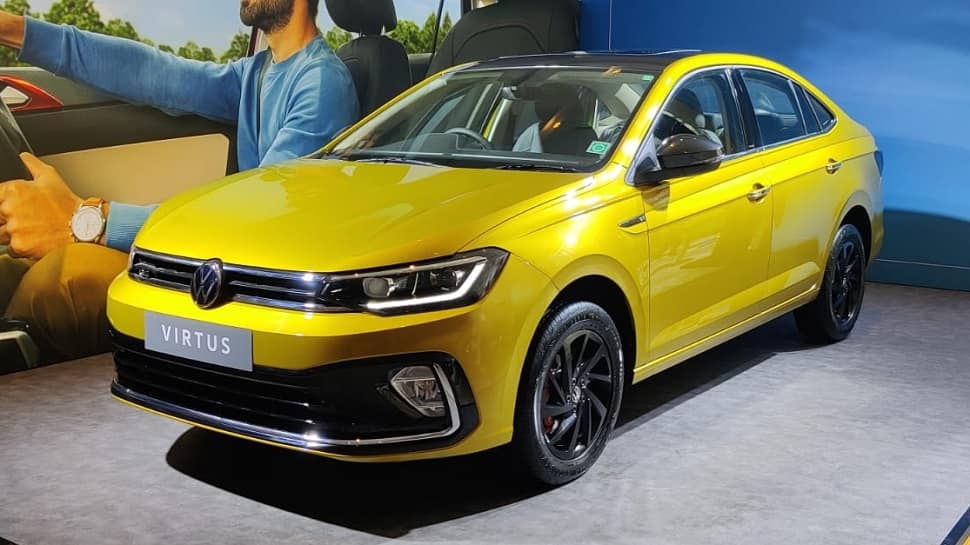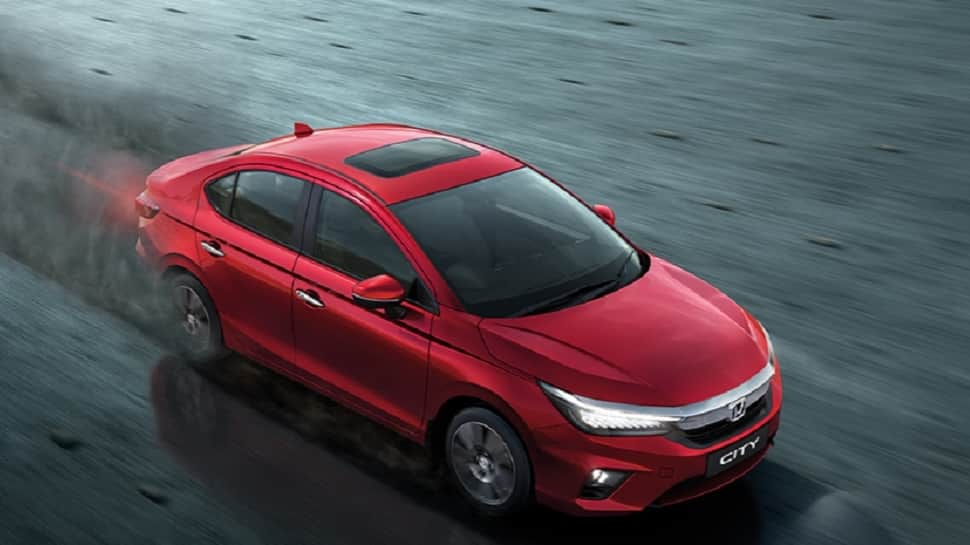Volkswagen Virtus vs Honda City spec comparison - The best mid-size sedan
While Honda City remains the top-seller in its respective segment, the new Volkswagen Virtus appears to be a strong rival. Let’s find out how these two go against each other.
- Volkswagen Virtus is priced from Rs 11.22 lakh,ex-showroom
- Honda City e:HEV gets a hybrid powertrain; delivers 26.5 kmpl
- Volkswagen Virtus is the longest, widest, and tallest car in segment
SUVs have stirred the globe with their practicality quotient. However, it wasn’t the case until a few years ago. In fact, the craze for sedans is still intact even today, although the volumes have shrunk by a fair margin. The aforementioned statement is not stopping the carmakers from launching new models in the country, we should understand. The newest one to join the list is the Volkswagen Virtus. It sits in the C-segment to rub shoulders with one of the most iconic nameplates in the Indian market - Honda City. Honda’s c-segmenter has been in India for longer than two decades. But how does it fare against the newest competitor - Volkswagen Virtus? Let’s find out in this spec comparison.
Volkswagen Virtus vs Honda City - Dimensions
Talking of specifications, the most crucial aspect while making a car purchase remains the size and overall road presence of the vehicle. In this regard, the Volkswagen Virtus wins by a fair margin. It is the longest, widest, and tallest car in its segment, with a length of 4,561 mm, width of 1,752 mm, and height of 1,507 mm. The claims do not come to an end here, it also has the longest wheelbase in its class of 2,651 mm.
The Honda City, on the other hand, is 4,549 mm long, 1,748 mm wide, and 1,489 mm tall. The wheelbase measures 2,600 mm, which is just 51 mm shorter than the Virtus’ wheelbase. The boot space on the Honda City measures 506 litres, which is lesser than the Virtus’ 521 litres of trunk volume.

Volkswagen Virtus vs Honda City - Engine & gearbox
As regards the powertrain, the Volkswagen Virtus is the most-powerful car in its class. It is offered with two engine options - 1.0L TSI and 1.5L TSI EVO. The former is tuned to deliver 115 bhp against 175 Nm, while the latter puts out 150 bhp and 250 Nm.
The Honda City is on sale with three powertrain options - 1.5L petrol, 1.5L diesel, and 1.5L hybrid. The NA petrol churns out 121 bhp and 145 Nm. The oil burner spits out a rated power output of 100 bhp and 200 Nm. The City’s hybrid powertrain has a combined output of 126 bhp and 253 Nm.
Talking of transmission options, the Virtus is available with three choices - 6-speed MT, 6-speed AT, and a 7-speed DCT reserved for the 1.5L TSI EVO motor. The Honda City can be mated to either a 6-speed MT or a CVT. Sadly, the CVT is exclusive to the petrol engine. The Honda City hybrid, however, comes standard with an eCVT.

Volkswagen Virtus vs Honda City - Mileage
In a market like ours where “kitna deti hai” is the favourite phrase of car buyers, we should be talking about mileage figures for these sedans. The Volkswagen Virtus has managed to claim a high figure of 19.40 kmpl for the 1.0L TSI motor with the stick shift transmission, whereas the option of AT brings down the figure to 18.12 kmpl. The 1.5L TSI EVO power plant with the DCT unit returns a mileage of 18.67 kmpl.
Moving over to the Honda City, it is a clear winner in this regard. The oil burner of the Honda City delivers a claimed mileage of 24.1 kmpl, whereas the 1.5L NA petrol motor returns a claimed efficiency of 17.8 kmpl and 18.4 kmpl with manual and automatic transmissions, respectively. Addressing the elephant in the room - City eHEV, it boasts a claimed mileage of 26.5 kmpl.
Volkswagen Virtus vs Honda City - Price
Prices for the Volkswagen Virtus start from Rs 11.22 lakh (ex-showroom) for the entry-level trim and tops out at Rs 17.92 lakh (ex-showroom). The Honda City has a base price of Rs 11.46 lakh, ex-showroom. The range-topping variant of the City is priced at Rs 15.41 lakh, ex-showroom. For the City Hybrid, one will have to pay a sum of Rs 19.50 lakh, ex-showroom.
Stay informed on all the latest news, real-time breaking news updates, and follow all the important headlines in india news and world News on Zee News.
)
